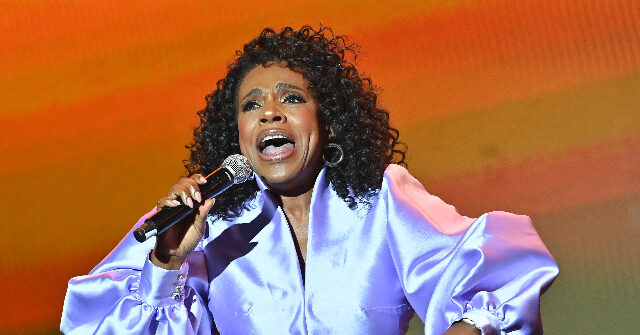Sheryl Lee Ralph, known for her role in ABC’s “Abbott Elementary,” recently made headlines for her impassioned speech at a Philadelphia church where she made a striking comparison between former President Donald Trump and the biblical figure Barrabas. In this discourse, Ralph portrayed Trump as a modern-day version of the convict who was released by the people instead of Jesus Christ, emphasizing that Trump has been “convicted of 34 felonies.” Her provocative rhetoric resonated with many in her audience as she underscored the perceived moral failure of the American electorate in choosing Trump, paralleling this choice to that made by the citizens of Judea during Passover when Pontius Pilate offered them a choice between Barrabas and Jesus.
Ralph’s remarks echoed a broader sentiment regarding the challenges faced by current political figures, particularly Vice President Kamala Harris, whom she seemed to implicitly position as a contemporary embodiment of Jesus in this metaphor. This correlation drew attention to the struggles Harris has encountered recently with declining support among Black voters compared to her predecessor, Joe Biden. Ralph’s rhetoric seemed to serve as both a critique of Trump’s past presidency and an advocacy for Harris by highlighting the stakes involved in the upcoming elections. Her remarks certainly sparked conversations about the political landscape and how historical narratives can be invoked to express contemporary frustrations.
The discussion surrounding Harris’s decreasing popularity, particularly among Black males, has prompted various political figures, including former President Barack Obama, to address these trends. Obama’s comments hinted at a perceived sexism influencing Black male voters’ reluctance to support Harris, a dynamic that Ralph seemingly aimed to challenge during her address. By invoking biblical references, Ralph not only sought to make a point about the current political environment but also to galvanize her audience into a more engaged and informed position regarding their votes and the implications of those choices.
In light of her passionate advocacy for Harris, Ralph’s speech underscores her commitment to the Vice President’s narrative, especially as she recently utilized her platform to educate audiences on contemporary social issues, such as respecting gender non-conforming pronouns. This advocacy highlights the role of celebrities like Ralph in shaping public discourse around sexuality, gender identity, and political alignment. By embracing these cultural discussions while juxtaposing them with political commentary, she aims to foster a more inclusive and understanding environment.
Ralph’s remarks serve not only as a political commentary but also reflect a broader cultural phenomenon where celebrities wield significant influence in political discussions. By aligning herself with Kamala Harris and criticizing Donald Trump’s legacy, Ralph highlights the complexities of voter sentiment and the heightened emotions involved in political identity. Her biblical analogy also illustrates a strategic use of historical narrative, aiming to incite reflection within her audience as they prepare for upcoming elections that could hinge on nuanced voter dynamics.
In conclusion, Sheryl Lee Ralph’s speech at the Philadelphia church represents a confluence of political critique, historical analogy, and cultural advocacy. By comparing Trump to Barrabas, she raises questions about the choices voters face today while simultaneously expressing her strong support for Harris. This intersection of storytelling and politics not only serves to challenge prevailing narratives but also seeks to mobilize voters and foster discussions on broader social issues that resonate across communities. Ralph’s passionate rhetoric encapsulates the urgency felt by many in the face of a politically polarized climate, marking a significant moment in the dialogue surrounding race, identity, and politics in America.

